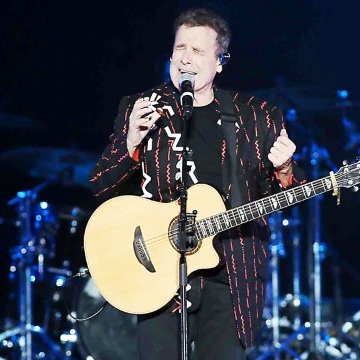News
Cross-over icon and social connector – farewell to Johnny Clegg
When Johnny Clegg was 16, his mother, Muriel, the public relations officer at a record company, begged me to speak to her teenage son who was fraternising with a Zulu musician named Sipho Mchunu.

PETER FELDMAN
Mchunu, then a gardener, and Clegg spent much time together while the former taught the Jewish teen the fundamentals of Zulu music, and traditional Zulu Inhlangwinini dancing.
In her office one day, Muriel broached the subject of her son. She was afraid, she admitted, that he would be arrested by the apartheid police. I thought this over for some time but decided, in my wisdom, to leave it, because I knew he would find the right path.
And he did.
He was the forerunner of combining Western musical styles with African ones, sparking a revolution in South African music that can be still be heard in the work of artists today.
Most potently, Clegg had the ability to connect people through his music. He was a pioneer in social cohesion in South Africa. He also provided a portal for international audiences to gain a deeper understanding of the anti-apartheid movement, and the journey towards, and ultimately into, freedom.
For this, Clegg has received many different honours including an OBE (Order of the British Empire), the South African Order of Ikhamanga, as well as several honorary doctorates.
Through his bands Juluka and Savuka, Johnny pioneered a uniquely South African hybrid music during a time of cultural and racial segregation. His music always offered a vision of how South Africans could find each other, and the possibilities of a non-racial future.
In October 1989, Roddy Quin, Clegg’s manager and promoter, offered me a trip to Paris to watch him performing at the famed Le Zenith with Mchunu and the band. My job as a music journalist was to report on my experience, watching a massive French audience singing along to all the hits.
It was an amazing, uplifting, proud-to-be-South African moment, and vividly brought home the impact Clegg and his music was having on an international audience.
He was bigger than Michael Jackson there. On opening night, there was a surprise guest – world famous folk artist Joan Baez – who together with Clegg and Juluka, sang several of his numbers.
Clegg was adored by the French, and given the moniker “Le Zulu Blanc” (The White Zulu). It was on that tour that he was presented with the French Chevalier des Arts et Lettres (Knight of Arts and Letters).
Ever since I have known Clegg, he has always been a humble soul. Intelligent, articulate, warm, and with a strong philanthropic side, Clegg never changed, remaining the same even at the height of his creative powers.
He was so proud of the success of his son, Jesse, that whenever I met him, this topic would eventually come up. It seemed, sometimes, that Clegg was reluctant to talk about himself.
A high moment in my relationship with him was when he married his beloved Jenny at a quiet ceremony on an estate outside Johannesburg. He seemed a bit awkward in the tight suit he was wearing for the occasion. They also had a traditional Zulu wedding later in KwaZulu-Natal.
I celebrated my 70th birthday at a Johnny Clegg concert at the Joburg Theatre as his guest of honour. Later, surrounded by many of my friends, Clegg and I cracked the amber liquid, reminiscing about the good times.
I was one of the first journalists in the early 1980s to write about him and Mchunu. White radio stations were reluctant to play his cross-over, hybrid music, and few would grant him interviews.
Each interview I did with him was a revelation. His sense of history was a dominant factor, and throughout, I remember his positivity, which was always a driving force in his life.
In April 2017, he embarked on his final world tour, “The Final Journey”. Clegg had been diagnosed with cancer two years earlier, and underwent chemotherapy. Throughout the treatment, he continued to tour locally and internationally, undertaking a nine-week tour of America and Canada in 2016. He managed to complete a new album in this time, and his autobiography. While in remission, he decided to use the opportunity to perform a final set of concerts in South Africa and overseas to thank his fans for their support on his long musical journey.
President Cyril Ramaphosa is quoted as saying, “Johnny Clegg is more than just one of this country’s finest musicians and entertainers. He is a national treasure who has brought together all South Africans, and reminded us what makes us great as a country.”
Quin added at the time, “It’s been a privilege to have travelled such a long journey with Johnny, and an honour to have worked and shared so many incredible experiences with him. It has truly been inspiring.”